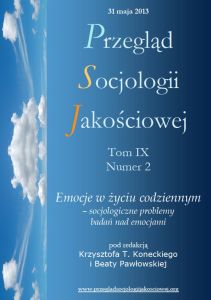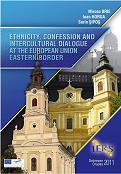Generating, Intensifying, and Redirecting Emotionality: Conceptual and Ethnographic Implications of Aristotle’s Rhetoric
Author(s): Robert Prus / Language(s): English
/ Issue: 2/2013
Keywords: Emotionality; Theory; Ethnography; Aristotle; Rhetoric; Pragmatism; Interactionism; Persuasion; Negotiated Reality
In contrast to those who more characteristically approach emotion as an individual realm of experience of more distinctive physiological and/or psychological sorts, this paper addresses emotionality as a socially experienced, linguistically enabled, activity-based process. While conceptually and methodologically situated within contemporary symbolic interactionist thought (Mead 1934; Blumer 1969; Strauss 1993; Prus 1996; 1997; 1999; Prus and Grills 2003), this statement is centrally informed by the pragmatist considerations of emotionality that Aristotle (circa 384-322 BCE) develops in Rhetoric. Although barely known to those in the human sciences, Aristotle’s Rhetoric provides a great deal of insight into people’s definitions of, and experiences with, a wide array of emotions. Addressing matters of persuasive interchange in political, judicial, and evaluative contexts, Aristotle gives particular attention to the intensification and neutralization of people’s emotional states. This includes (1) anger and calm, (2) friendship and enmity, (3) fear and confidence, (4) shame and shamelessness, (5) kindness and inconsideration, (6) pity and indignation, and (7) envy and emulation. Following an introduction to “rhetoric” (as the study of persuasive interchange) and “emotionality,” this paper briefly (1) outlines a pragmatist/interactionist approach to the study of emotionality, (2) considers Aristotle as a sociological pragmatist, (3) locates Aristotle’s work within the context of classical Greek thought, (4) acknowledges the relationship of emotionality and morality, and (5) addresses emotionality as a generic social process. Following (6) a more sustained consideration of emotionality within the context of Aristotle’s Rhetoric, the paper concludes with (7) a short discussion of the importance of Aristotle’s work for studying emotionality as a realm of human lived experience on a contemporary plane.
More...


